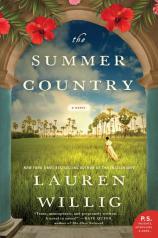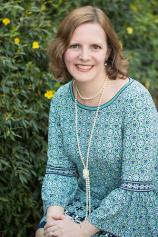Reading Group Guide
Discussion Questions
The Summer Country

1. In the first chapter, Emily tells us that “her grandfather had always said she was the most like him.” What did that mean to her at the start of the book? What might it mean to her by the end, when she has learned more of her grandfather’s life story?
2. When Emily is shocked to learn that London Turner --- himself born into slavery --- had owned slaves, his nephew Dr. Braithwaite challenges her: “Should my uncle be subject to sterner censure than the man who owned [Pever-ills]? Or, for that matter, than those who traded in sugar, knowing whence it came?” What do you think?
3. Charles tells Jenny: “My father always said that the institution of slavery is a disease that sickens owner and owned alike --- but so much worse for the owner, who has choice in the matter. To own another person corrupts one.” Do you believe this, as Charles seems to? What does it mean that Charles’ father believed it yet continued to enslave people? How are the other plantation owners in the book corrupted by the fact that they own people? How does this reflect on Charles himself?
4. Charles and his father both have children with enslaved women. How are their circumstances --- and the way they treat the women involved --- different? How are they similar?
5. When Jenny and Mary Anne are teenagers, they carefully stick together in order to protect themselves from the danger posed by Mary Anne’s Uncle John. What happens after marriage frees Mary Anne? Does that newfound freedom change her relationship with Jenny?
6. Mary Anne attempts to free herself from the threat of her uncle by marrying Robert Davenant. But after marriage, she discovers she still has little control of her life and fortune and is still very much under threat. Were there any good options available to 19th-century women?
7. Dr. Braithwaite says of Mary Anne: “If you ask anyone, they’ll tell you that Mrs. Davenant was a good mistress --- by the standards by which people judge their own.” How would you judge Mary Anne? What might Jenny, or Charles, or Jonathan Fenty say?
8. After Robert’s death, Charles thinks, “They had killed Robert. Or had Robert killed himself? Fate or free will, divine judgment or the mere consequence of one choice leading to another and another and another, until the weight of those choices collapsed on one, bearing one down.” What do you think?
9. Why does Jenny tell Bussa to burn Beckles to the ground? Would you have done the same?
10. Mary Anne tells Emily, “You’ve come to be a judgement to me. Or to put things right. One or the other. Unless they’re one and the same.” What do you think Emily’s presence at Beckles means for Mary Anne?
11. When the truth dawns on Emily that she is Jenny’s granddaughter, she thinks, “The truth was that she didn’t want to believe that might have been her grandmother in the picture. It was one thing to go to a lecture and account herself enlightened...but quite another to imagine oneself in shackles, bought and sold because of the color of her skin.” Does it matter that Emily was raised by abolitionists? Does that help her to accept the truth about her mother and grandmother?
12. Emily is determined to marry Nathaniel Braithwaite, who is also descended from enslaved people, but unlike her, his family history is unmistakable. Do you think she would have been just as willing to marry him had she not known about her own heritage?
13. What do you think will happen when Emily goes to Paris? What kind of welcome will she find there?
14. What do you think will happen to Emily and Nathaniel, Laura and George, Charles and Jenny, in the years after this novel ends? What kind of future do you see for them? Where do you see their descendants today?
The Summer Country
- Publication Date: June 9, 2020
- Genres: Fiction, Historical Fiction
- Paperback: 496 pages
- Publisher: William Morrow Paperbacks
- ISBN-10: 0062839039
- ISBN-13: 9780062839039







